Love Hotels in Japan: What You Need To Know Before You Go
A Girl's Guide to Japan's 'No Tell' Motels
Everything a girl needs to know about these pay-by-the-hour ubiquitous rendezvous spots.
You’re walking along a busy, brightly-lit Tokyo street when you encounter a downright outlandish building. The private entrance has a sign reading “stay” (宿泊, shukuhaku) and “rest” (休憩, kyukei). The building has fancy lettering, typically neon signs and a quirky name like Hotel Oz, Casablanca or Hotel Fooo. By now you realize that you have not encountered a regular hotel. You’re standing in front of a Japanese rabuho (love hotels). Welcome to the not-so-hidden, pay-by-the-hour (or night) pleasure accommodation for couples, secret lovers and other forms of one-time celebrations of love.
Love Hotels: History & Background
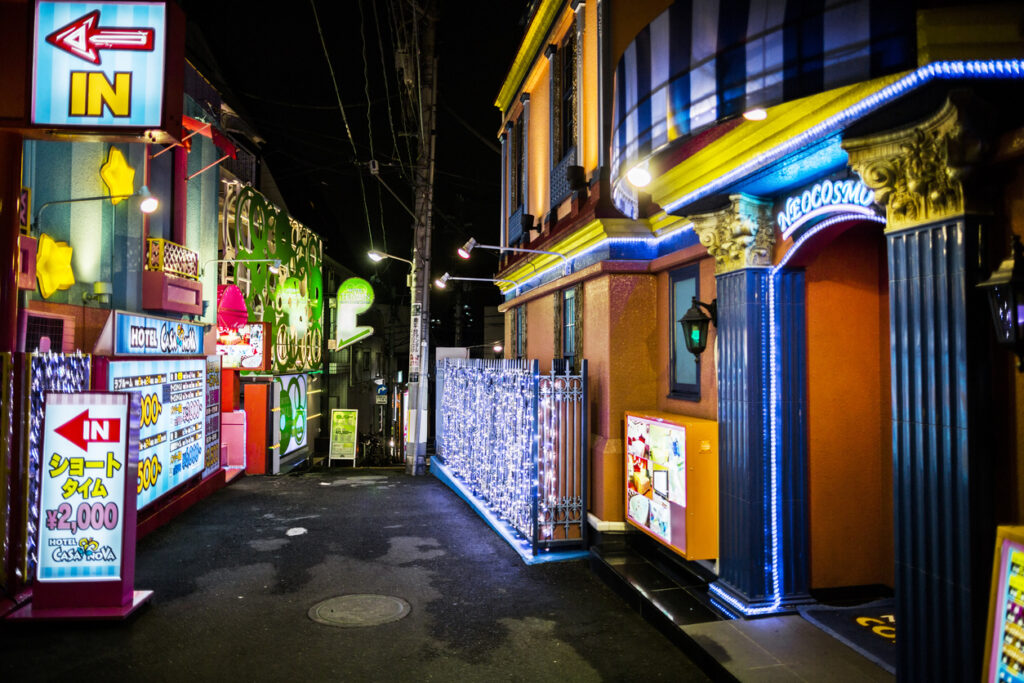 © Photo by iStock: aluxum
© Photo by iStock: aluxumNo surprises here. A “love hotel” is essentially a no-tell motel. A short-stay accommodation that offers hourly or nightly rates—in the name of love. Whatever this means to the users. A rest or short stay can be anywhere from two to four hours. It can cost between ¥2,900-¥7,000 depending on the date and hotel. A stay (typically overnight to 9 or 10 a.m.) can cost anywhere from ¥3,900 to well over ¥20,000. Any room service items or meals that you order can add to these prices as well.
The modern term (love hotel) comes from Hotel Love, the first of this kind which opened in Osaka in 1968.
The concept of a love hotel is not unique to Japan. The modern term itself comes from Hotel Love, the first of this kind, which opened in Osaka in 1968. It was soon followed by thousands of other love hotels throughout the country. Love hotels were originally meant as short-stay destinations for couples needing a little privacy. During the early postwar period, young couples often still lived in extended family dwellings. As such, any one-on-one special moments had to be conducted elsewhere.
During the economic Bubble period in the late ‘80s and early ‘90s, love hotels became almost a status symbol date spot. Going there with your partner was almost ritualized as a standard date course. The hotels were flourishing and the business competition was fierce. To keep up with demands, hotel operators would open themed hotels (jungles, fairytales, Kitty etc,). They catered to various clientele and preferences to suit every taste. In those years, love hotels were a trend. A friend of mine jokingly said once that many Japanese people in their late twenties to thirties today “were probably conceived during a date in one of those hotels.” True or not, it shows how popular it was back then.
Love Hotels Today: Less or More Entertaining?
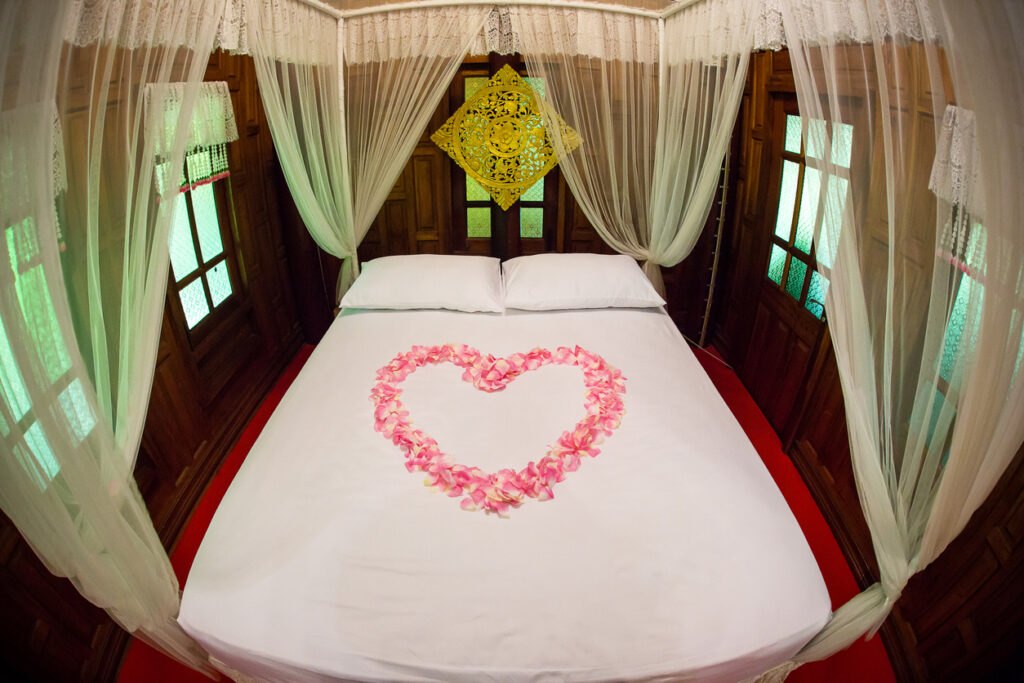 © Photo by iStock: kckate16
© Photo by iStock: kckate16Today, love hotels are still a big part of the dating (and sex industry) landscape in Japan. They are also becoming one of the biggest tourist draws and sources of cheap accommodation. With more single people living alone, the need to visit love hotels for dates has decreased over the years. It called for an adjustment in their business plan. It is estimated that there are over 10,000 love hotels in Japan. However, according to research released in 2016, the occupancy rate is approximately 40% on weekdays. Ahead of the Tokyo 2020 Olympics, the government announced plans to convert some “underperforming” love hotels into regular accommodation facilities.
As a result, in rural areas with or near major highway access, many older love hotels have adjusted their policies. Rooms have been edited to be family-friendly, allowing for group or business stays. Many now even offer full-room service meal menus. Other love hotels have started offering special service packages for birthday parties, beauty retreats, and bachelorette parties. There are even luxury stays with couples’ aesthetic spa programs that include hot springs and saunas.
For Women Traveling Alone
Love hotels are also great places to stay if you are a woman traveling alone. Capsule and business hotels are sometimes restricted to men-only locations. They often don’t include amenities or even adequate bathing space or storage for long-distance travelers. I’ve visited 36 prefectures in Japan so far and stayed by myself at love hotels in all of them. No reservations in advance are required! And no need to worry about curfews or check-in limitations. The only downside is the struggle to find a place that has any rooms available during peak holiday times.
A Closer Look: What do love hotels offer?
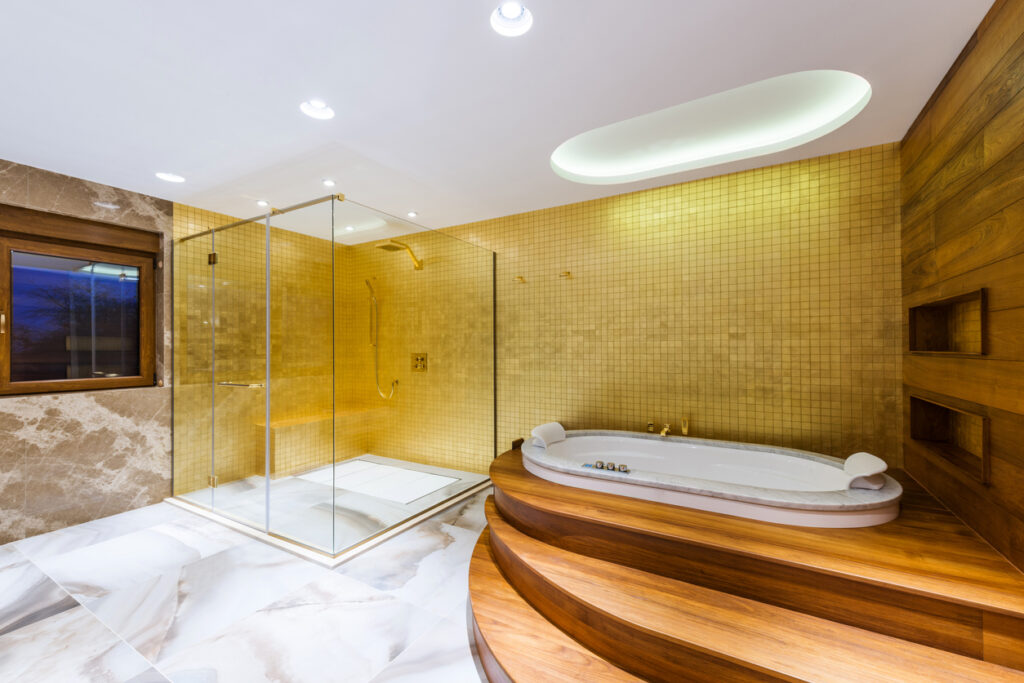 © Photo by iStock: poplasen
© Photo by iStock: poplasenBefore getting into the details, the rooms themselves are worth talking about. The vast majority of love hotel rooms are spacious enough to make apartments in Tokyo feel like a closet. The average smallest room size of a love hotel is about 20 square meters. As a reference, I used to live in a 2K apartment that was only 17 square meters. More luxurious suite rooms can be anywhere from 25 to 80 square meters in size.
In most major hotels, you will find rooms with:
- Full Jacuzzi bath and shower
- Large-screen television with video-on-demand service
- Small kitchen with a fridge, mini bar, microwave and kettle
As well as, of course, a king-sized bed.
The bath will naturally have shampoo, conditioner and body soap. Plus, there are plenty of other items you might need during your stay: facial cleansers, bubble bath or bath salt sachets, hairdryers, combs and razors. There will always be free condoms provided, most likely in a small box next to the bed.
And that’s not all!
While it may vary from hotel to hotel, the majority of love hotels today also offer product rental services. Need a phone charger? Check. A massage gadget? Check? Nail clips? Check. Whatever you need, you’ll find it in the rental goods booklet or the main menu on the television. The photo below shows some items that are typically available at most love hotels. A friend of mine who worked at the front desk said, “Love hotels aren’t any different from regular hotels. Customer service is key! Plus, you can’t guarantee they’ll be back, so making each stay perfect is important.”
Some love hotel chains even have their own loyalty card system. If you stay a certain number of times or spend an amount of money you can receive prizes. Prizes include brand bags or wallets, tickets to exclusive events or gift certificates for fine dining establishments.
Love Hotel Prices
As mentioned earlier in the article, the cost for a few hours’ stay can be up to several thousand yen. An all-night stay is typically around ¥10,000 depending on the location. In central Tokyo, especially on weekends, Friday nights and holidays, prices can go crazy. In less-populated areas, you may get a pretty decent deal that’s far less than a regular hotel room. Another thing to keep in mind is that in love hotels, you’ll pay by the room. Not per person as in regular hotels.
Upon entry, you will usually be greeted by a screen that lists all available rooms. Head to the counter to pay for your room. Sometimes, the counters will be partially hidden to avoid face-to-face awkward encounters with the people behind them.
Love Hotels in Tokyo: Choose The Right One
 © Photo by iStock: AlexVolot
© Photo by iStock: AlexVolotYou’ll find many love hotels in popular areas across Tokyo; Shibuya, Shinjuku’s Kabukicho, Ikebukuro, Uguisudani and Ueno. Some near expressway junctions and parking areas too. Choose a place that’s clean and safe—regardless of what your purpose is. There are two ways to find the best love hotels in any major city:
- Look for the largest concentration of bars and clubs. They should be nearby.
- Look on a Love Hotel ranking site, like Happy Hotel or Couples. Or their associated apps, Couples Navi from the Couples website and Happy Hotel. (The sites are in Japanese but have enough pictures to let you browse through and choose your favorite place.)
According to Happy Hotel, the largest concentration of love hotels in Tokyo is in Toshima-ku (Ikebukuro). They have over 100 listed on the site only, followed by Shinjuku and Taito-ku. Surprisingly, Shibuya comes fourth, while places like Chuo-ku and Setagaya-ku only have a few.
Where To Stay
Based on the top rankings (and some reviews from friends) in the Tokyo area. The best love hotels hands-down belong to the Bali An Group. With locations across Japan, they are well known for their incredible attention to detail in terms of amenities, decor and food menus. They also have multiple joshikai (girls’ night out) plans, including birthdays and Christmas get-togethers. Other noteworthy love hotels in Tokyo include:
- Hotel St. Moritz in Asakusa
- Hotel Meguro Emperor in Meguro Ward (one of the oldest in Tokyo)
- Hotel Sulata in Shibuya (which also has locations across Japan as well)
Whether you are looking for accommodations for yourself during your travels, a place to hold a party with girlfriends or somewhere to go when you don’t want a date to end, love hotels are the easiest and most convenient places to go. You might even consider staying at one as a treat to yourself! Soaking in a huge Jacuzzi and then sleeping in a king-sized bed is a great way to relieve the stress. Check out our 10 love hotel recommendations, from the safest to the most adventurous! As well as these five luxury stays in Tokyo for something more romantic.
What are your thoughts on Japan’s love hotels? Let us know in the comments.


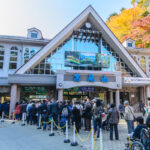












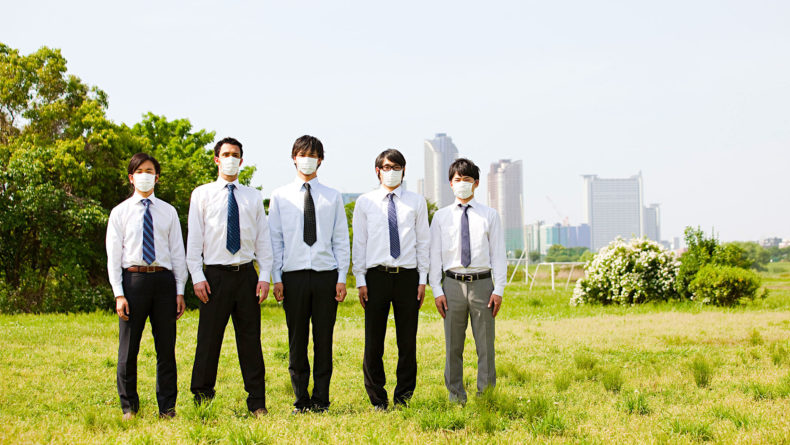
Leave a Reply